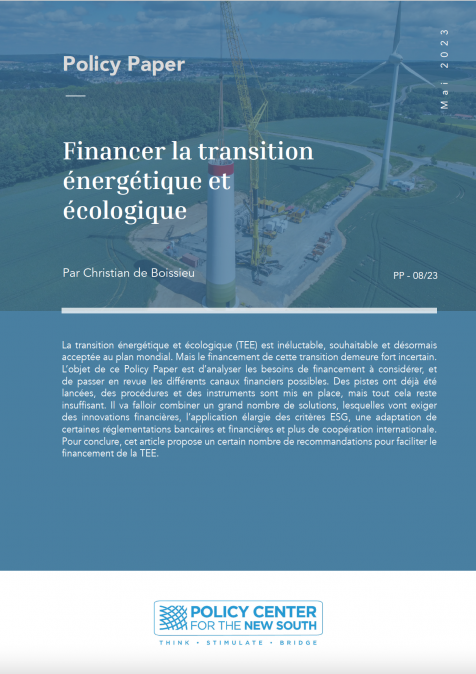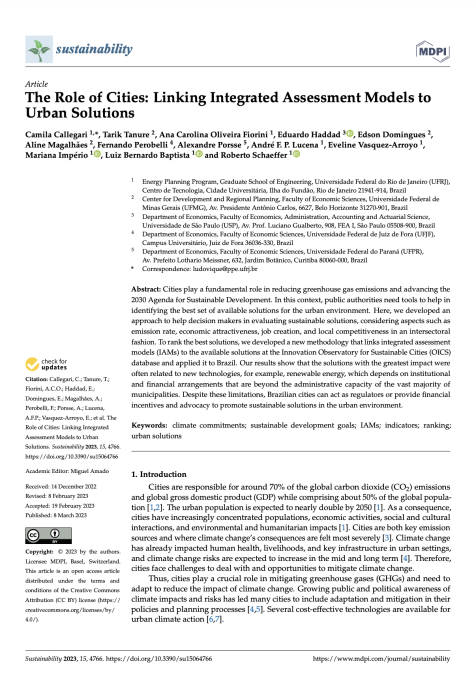مع تزايد التحديات البيئية وتفاقم تأثيرات التغير المناخي، بات التمويل المناخي ضرورةً ملحة لدفع التحول نحو اقتصاد منخفض الكربون ومستدام. فكيف يمكن توجيه الاستثمارات لتحقيق هذا الهدف؟ وما هي الأدوات المتاحة لدعم هذا التحول؟ تقدم لنا لوري هايتايان، مديرة معهد حوكمة الموارد الطبيعية للشرق الأوسط وشمال إفريقيا، وصابرين عمران، باحثة اقتصادية في مركز السياسات من أجل الجنوب الجديد، رؤى حول أهمية التمويل المناخي ودوره في بناء مستقبل أخضر لمنطقتنا
Speakers

Badr Mandri
Economist
Badr Mandri is an Economist who joined Policy Center for the New South after two years’ experience at the Moroccan national statistics office (HCP, High Commission for Planning). His research activities focus on development macroeconomics especially on fiscal policy and development financing. Badr Mandri holds a master’s degree in applied economics, and is currently a PhD student at Mohamed V University in Rabat;
...

Sabrine Emran
Economist
Sabrine Emran is a Finance graduate specializing in financial markets and commodities. She holds a Grande Ecole master’s degree in Management from IESEG School of Management and ISCAE Group, as well as a Specialized master’s degree in Financial Markets from Paris Dauphine University and ENSAE ParisTech. Sabrine Emran started her career in investment writing and product development in the asset management branches of insurance companies and investment banks in Paris, working mainly on alternative investment asset classes. She was also recently a commodities analyst, focusing on risk management strategies for energy and agricultural commodities as well as foreign exchange risks. Sabrine Emran joined the Policy Center for the New south in September 2022 as an economist where she ...










